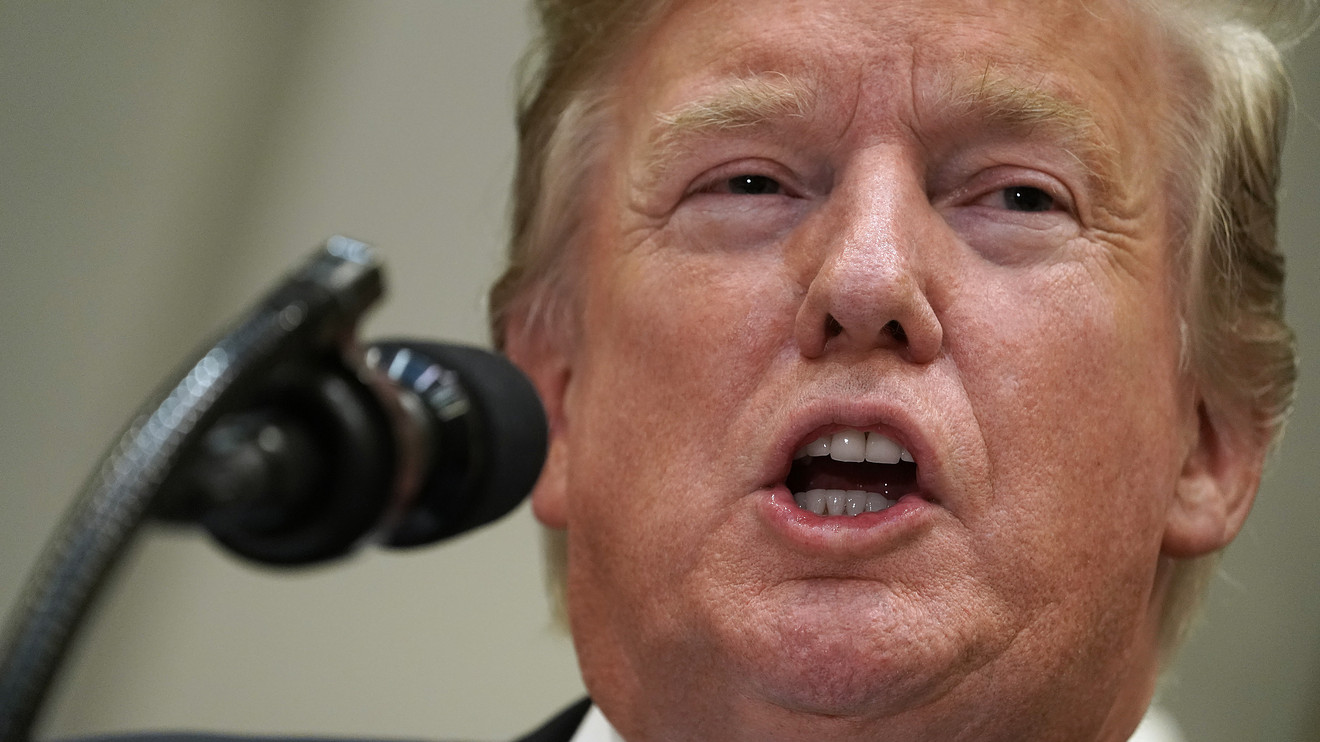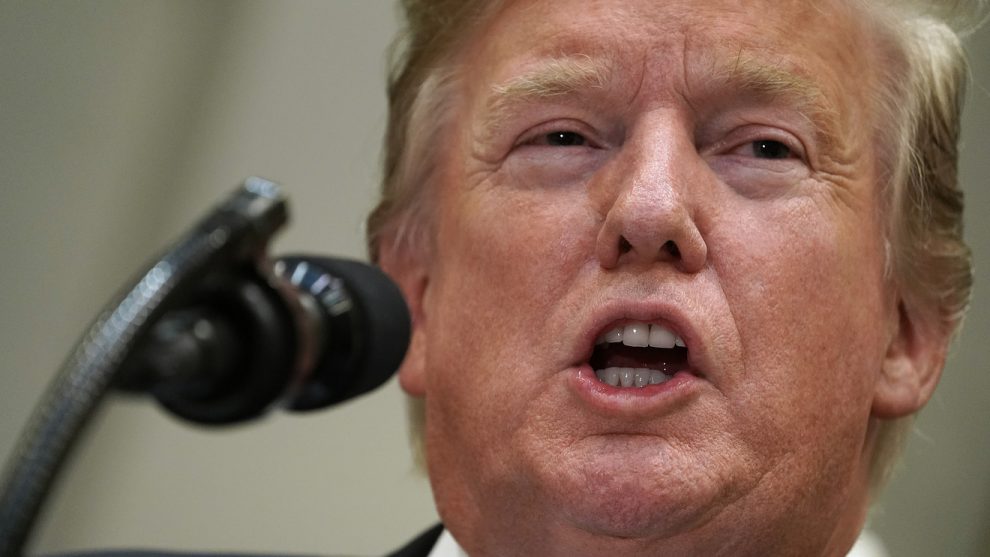
President Donald Trump on Thursday announced his intention to institute a 10% tariff starting September 1 on the $300 billion in goods that have so far escaped added levies, and financial markets have not taken the news well.
The Dow Jones Industrial Average , S&P 500 index and the Nasdaq Composite index all went from more than 1% gains Wednesday to at least 0.8% losses in the final hours of trade, following the president’s Twitter announcement, but the pain felt today could be just the start of volatility, analysts warn.
The additional tariffs will exacerbate a worrying trend of declining business investment and the malaise will likely spread from the industrial sector to consumer-facing companies as well, analysts tell MarketWatch.
“It goes to confidence and clarity and credibility,” Willie Delwiche, investment strategist at R.W. Baird told MarketWatch in an interview. “The U.S. economy can handle within reason a given level of tariffs, if it’s known what the level will be,” but the presidents unpredictable raising of the stakes will directly lead to businesses feeling like they need to preserve capital to prepare for the unknown.
What’s more, the proposed next round of tariffs will mostly affect products that are either sold directly to consumers or are components for such goods. A recent analysis by J.P. Morgan’s chief equity strategist Dubravko Lakos-Bujas indicated that two-third of the products to be hit by the impending round of tariffs are concentrated in the technology and consumer discretionary sectors of benchmark stock indexes.
Consumer discretionary stocks were among the worst performing Thursday, falling 1.3% on the day, versus the S&P 500 index, which fell 0.9%. “Retail companies have lower pricing power and less dedicated supply chains, which should translate into weaker margins as companies absorb some of the incremental input costs to their core suppliers and end users,” Lakos-Bujas wrote.
Rebecca Corbin, C.E.O of Corbin advisors, who advises public companies on investor relations strategies said that her conversations with executives and board members has convinced her that “the slowing growth we’re seeing is absolutely tariffs related.”
“Public companies are passing along the costs of higher tariffs along to suppliers and consumers and that’s why we’re seeing slowing growth,” she added. Meanwhile, “executives are more reluctant to lay down capex.”
Among the hardest hits consumer discretionary brand stocks on Thursday were Best Buy Co. Inc. BBY, -10.79% , Dollar Tree Inc. DLTR, -3.99%, The Gap Inc. GPS, -7.90% and Kohl’s Corp KSS, -7.82%.
Eventually, the cumulative effect of new tariffs, especially the latest round targeting consumer goods, will start to weigh on consumer spending power, and more worrying, employment levels. ”Companies are aggressively cost cutting,” Corbin said. “There will come a point where companies have passed on as much cost as they can to suppliers and customers and the general market says no more.”
“The deeper cuts will have to come from layoffs, and that will lead to rising unemployment,’ she added. “Will it be immediate? No, but we’re already seeing slowing growth and I don’t see what the catalyst will be that’s going to reverse that trend.”












